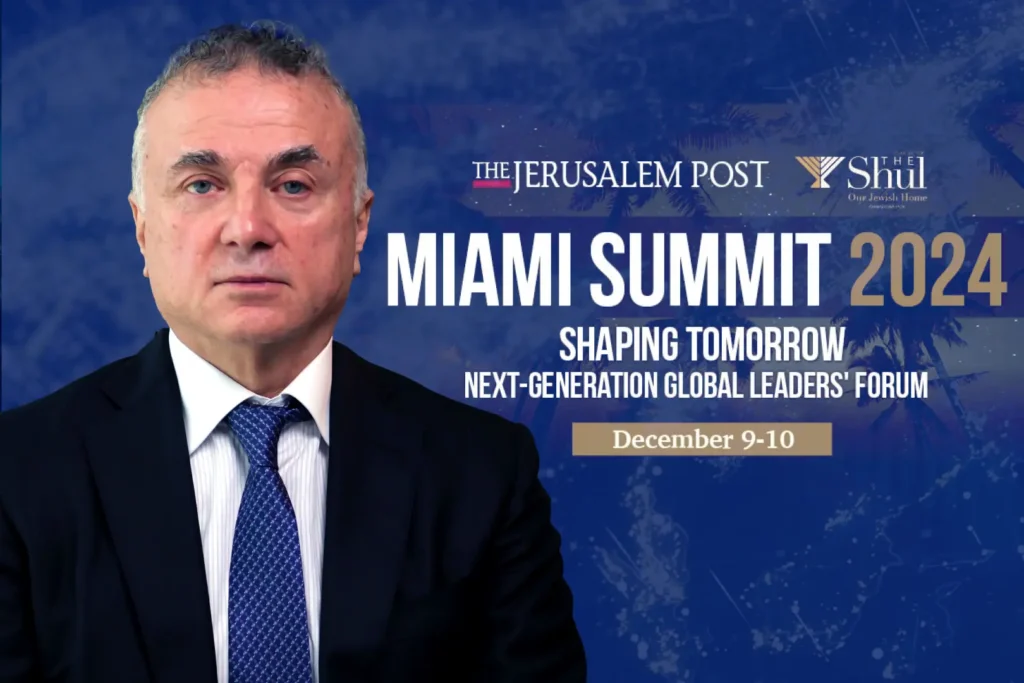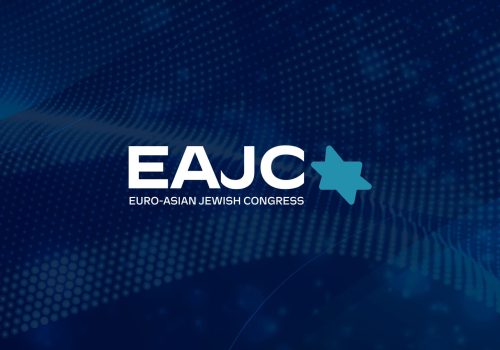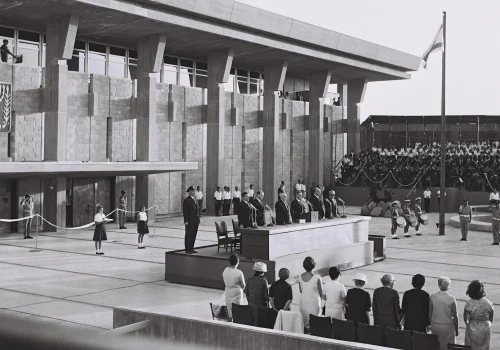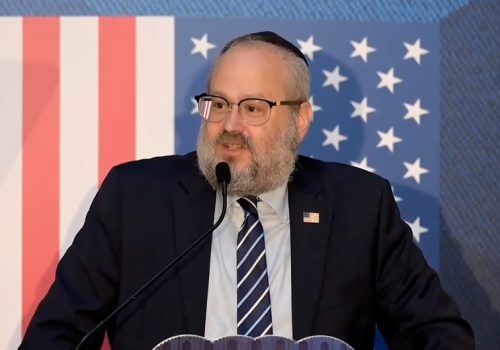
Dr. Michael Mirilashvili, President of the Euro-Asian Jewish Congress (EAJC), addressed The Jerusalem Post’s annual conference held in Miami on December 9–10. The event brought together prominent diplomats, influential politicians, visionary thinkers, technological pioneers, and leaders of Jewish communities worldwide to discuss the far-reaching implications of Israel’s ongoing struggle against pro-Iranian forces in the region.
In his address, Dr. Mirilashvili called for a bold reimagining of global frameworks to uphold international peace and justice. He expressed concern over the dysfunctionality of the United Nations and international courts in The Hague, which, he argued, have devolved into arenas for political posturing rather than guardians of fairness and stability. Stressing the destructive influence of the Iranian regime and its proxies, he emphasized the necessity of their global isolation to ensure lasting regional security.
Dr. Mirilashvili also highlighted the pressing need for post-war reconciliation and the pursuit of groundbreaking peace initiatives. At this critical juncture, he urged world leaders to rise to the occasion with courageous diplomacy, capable of forging a path toward a more peaceful and secure future for Israel and the broader Middle East.
Full broadcast:
Full address:
Dear friends,
It is my honor to address you today at this esteemed Jerusalem Post Leadership Forum. I’m grateful for the opportunity to speak at such a truly critical moment.
The military operation of the Israeli Defense Forces, launched in response to the brutal October 7 terrorist attack by Hamas, has triggered an unprecedented wave of global antisemitism and unjust criticism of Israel’s right to defend its citizens and ensure their security.
While Hamas and its supporters celebrate the International Criminal Court’s decision to issue arrest warrants for Israel’s Prime Minister and a former Defense Minister, we cannot remain silent. This is a grave injustice that must not go unnoticed.
We call on all ICC member states to reject this shameful decision and refuse to enforce these arrest warrants.
Israel is fighting for the security of its citizens in a complex and morally challenging battle against terrorists who employ the most despicable war tactics.
Even if we take into account all alleged missteps, it is unthinkable to equate the leaders of a democratic state with the masterminds of a terrorist group responsible for the horrific attack on thousands of innocent civilians.
In recent years, we have witnessed the profound ineffectiveness of institutions meant to uphold international peace and justice. The United Nations and International Courts in The Hague became nothing more than an arena for political games, far from their initial purpose, which they are not fulfilling.
Through their actions, those institutions only exacerbate existing problems rather than resolve them. It became evident that the existing structures are failing. Global leaders must step forward with new, more effective frameworks for justice and diplomacy.
We are deeply grateful to the U.S. administration for its recent veto of the UN Security Council resolution calling for an unconditional ceasefire in Gaza—without demanding the immediate, unconditional release of hostages held by Hamas. Such one-sided demands defy common sense and exemplify the destructive diplomacy that can bring no good except for deepening the crisis.
We also commend the U.S. Senate for decisively rejecting three anti-Israel resolutions. Proposals to halt military aid to Israel set a dangerous precedent, and we are glad that the majority of American lawmakers recognize the importance of supporting a vital strategic ally.
It must be understood that any attempt to undermine Israel’s ability to defend itself against Iran-backed terrorists serves only to embolden those who seek the destruction of Israel and, ultimately, the entire framework of Western civilization, built on freedom and the sanctity of human life. European leaders must also grasp this reality.
As long as Iran continues to play a destructive role in the region, it must face isolation. Its influence on the internal affairs of other nations must be significantly diminished. We support the truce agreement in Lebanon, as long as it fosters governance by legitimately elected representatives rather than Iranian proxies.
In these turbulent geopolitical times, we need constructive diplomacy rather than a destructive one.
A shining example of such diplomacy is the Abraham Accords—an extraordinary achievement of U.S. policy in the Middle East that has genuinely transformed the region. These agreements have set a new precedent for peace and cooperation between Israel and its neighbors, demonstrating the remarkable possibilities that can be achieved through bold and visionary leadership.
What once seemed impossible has given people in the Middle East hope that a more peaceful and stable future may be closer than it appears. These steps were not easy, but they remind us that even deeply rooted paradigms are subject to change. Transformation is possible, and together, we can build a future shaped by reason, dialogue, and a genuine desire for peace.
However, today, I would like to reflect not only on what has been done but what is yet to be accomplished. The cruel realities of multiple wars have become all too familiar, and peace often feels like a very distant aspiration. But we must not get used to it. Now is the time to move forward. It is time to discuss the post-war arrangement.
Yet such dialogue is only possible under a few fundamental conditions.
First, the unconditional recognition of the State of Israel. It is inconceivable, that in the 21st century the Jewish people’s right to self-determination remains subject of debate. The historical decisions of the international community that affirmed Israel’s creation must not be questioned.
Second, the inviolable right of Israel to peace and security. The Jewish state’s right to exist peacefully, protect its citizens and borders cannot be subject for compromise.
This is the foundation of any meaningful discussion about the Middle East’s future.
But we, too, must reexamine our role. Apparently, no one will bring peace to us on a silver platter. We must proactively seek new formulas and be willing to find compromises while firmly upholding our core conditions.
At this pivotal moment, I wish to address Israeli leaders once more: today calls for maturity, wisdom, and responsibility. The Jewish people, in Israel and the diaspora, are looking to you for actions that unite rather than divide. We stand at a historic crossroads where every decision will shape our future for decades to come. In such times, being a politician is not enough—you must be a leader.
We were destined to live in an era of rapid change and immense challenges. Every age presents its own trials but also opens doors to new opportunities.
I know those those gathered here today do more than just observe the world’s changes—they are actively shaping them.
Addressing my colleagues here today, I feel that hope for change is not an abstract concept. It is alive in people who are ready to build bridges where once stood walls. It is alive in their drive to envision and create a world where respect and security replace hostility and fear.
Here, among the leaders of the Jewish world, I firmly believe that change is not only possible—it is inevitable.
The Euro-Asian Jewish Congress is ready to support any initiative that brings us closer to a more peaceful and prosperous future. Thank you for your attention.


